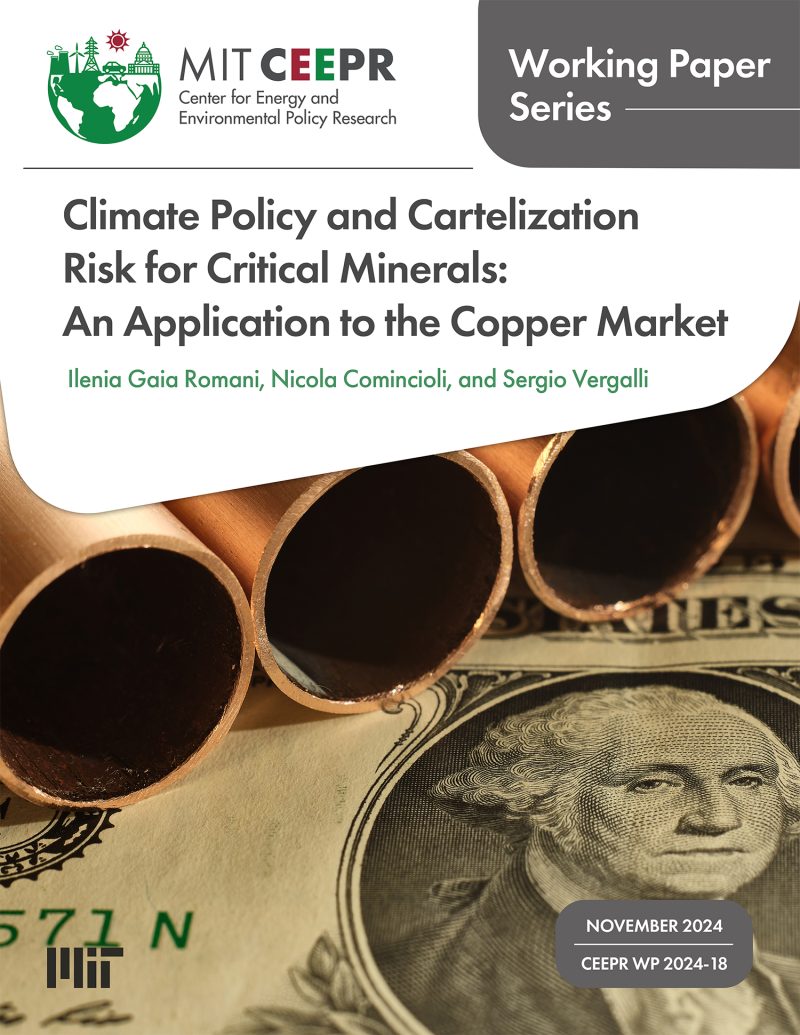Climate Policy and Cartelization Risk for Critical Minerals: An Application to the Copper Market
Ilenia Gaia Romani, Nicola Comincioli, and Sergio Vergalli
November 2024
Demand for critical raw materials is on the rise, largely due to the energy transition. As demand increases, so do concerns about cartelization attempts, in which some mining countries might organize to control the market by eliminating competition among producers. This would reduce output and thereby force up prices. Quantifying the potential profits of cartelization for specific minerals will help us predict which attempts could succeed. We apply a theoretical model of non-renewable resources extraction to the copper market, and calculate the optimal price, profits and reserves trajectories in a competitive versus a monopolistic market. Our results show that, in the long run, the expected profits of a copper cartel are approximately one and a half times higher than those achieved without market power.



